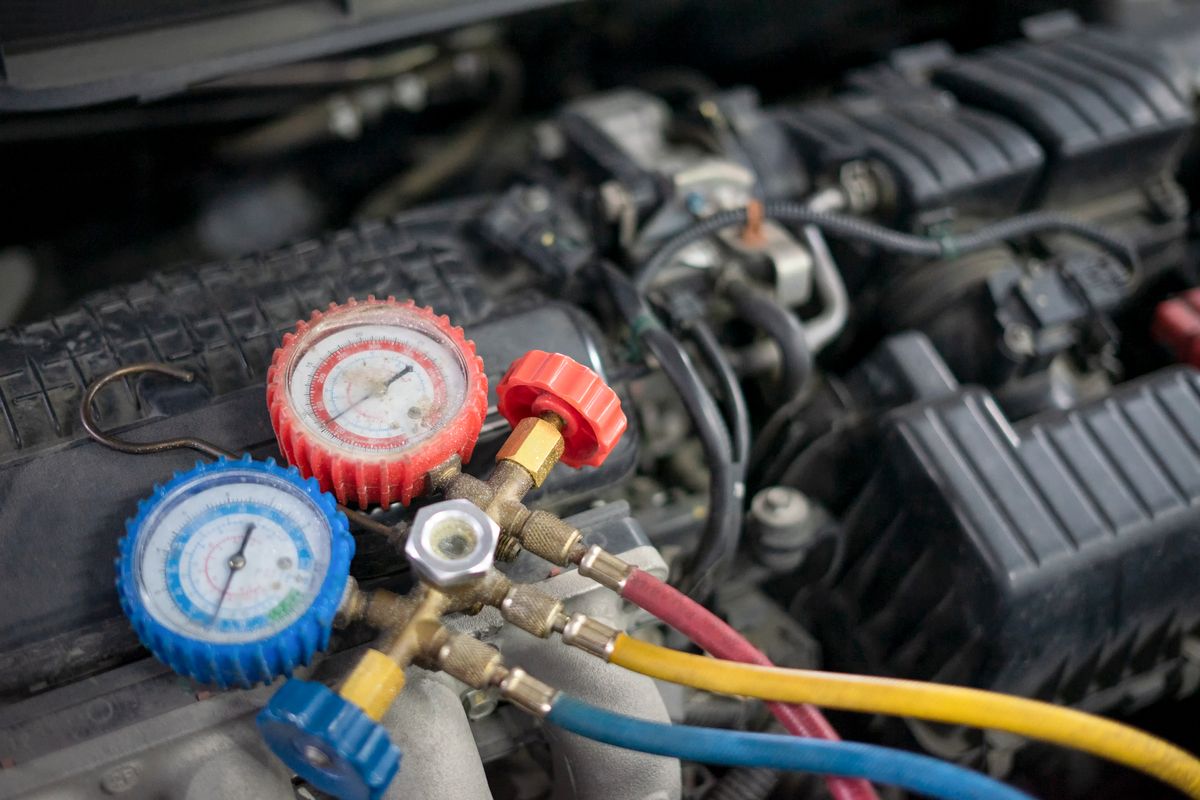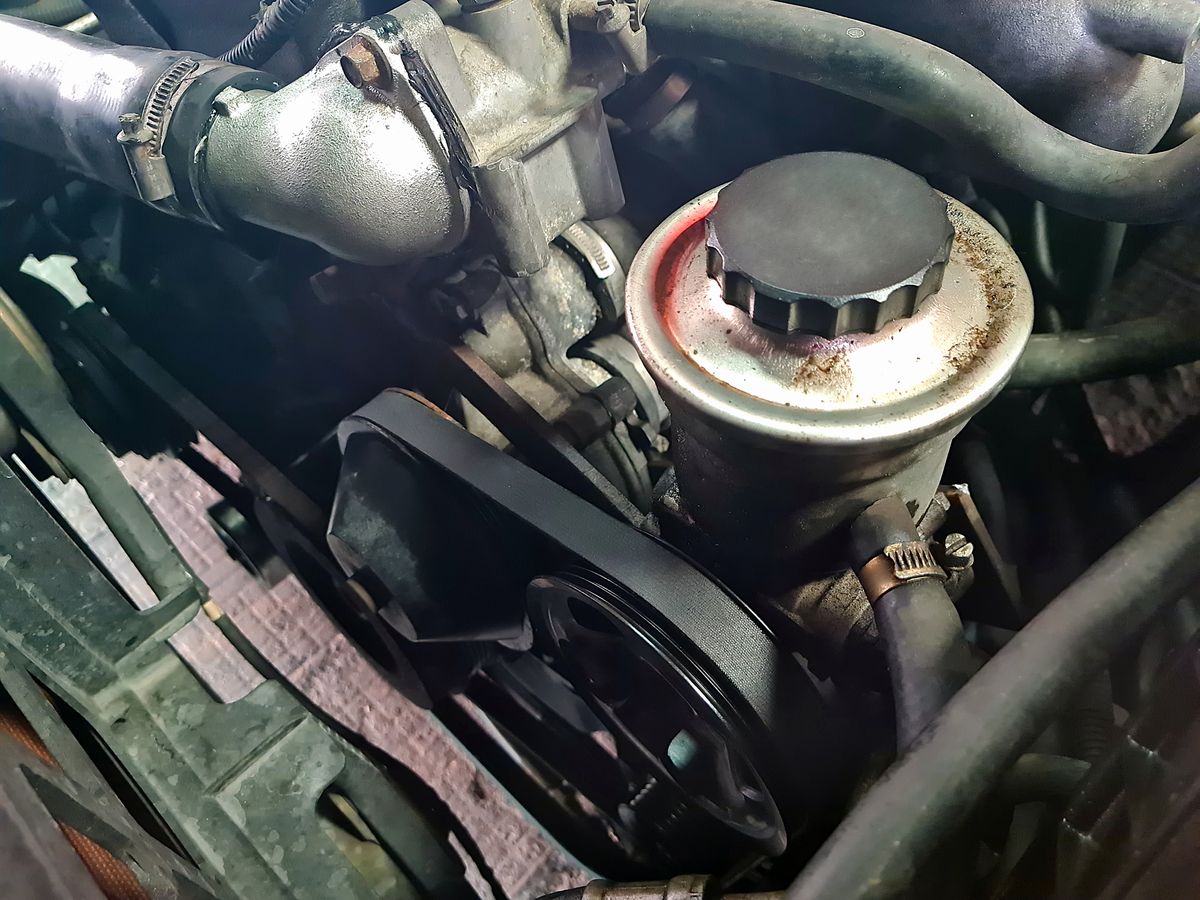
To prevent engine failure and keep your vehicle running smoothly, it’s crucial to be aware of the signs of coolant leaks. In this section, we will discuss common symptoms of coolant leaks, such as:
- Puddles under the car
- Low coolant levels
- Engine overheating
- Sweet-smelling odors
By understanding these symptoms, you can address an antifreeze leak or coolant leak before it leads to more severe problems.
Puddle Under the Car
A telltale sign of a coolant leak is a puddle beneath your vehicle. Coolant can have a green, orange, or pink hue, depending on the type used in your car. If you notice a colorful liquid pooling near the front of your vehicle, it’s likely a coolant leak.
The source of the leak may be from damaged hoses, loose connections, or even small cracks in the radiator. It’s essential to inspect and address any leaks promptly to avoid engine overheating and costly repairs.
Engine Overheating
When there’s insufficient coolant to regulate your engine’s temperature, overheating can occur. Driving with an overheating engine can lead to severe consequences, such as warping the heads, contaminating the oil, and leaving you stranded on the highway. If you experience engine overheating, it’s crucial to take immediate action.
If you hear a hissing sound or see steam coming from under your car’s hood, follow these steps.
- Pull over immediately and allow the engine to cool down.
- Do not attempt to remove the radiator cap while the engine is hot, as this can cause burns from the pressurized coolant.
- After your engine has cooled, inspect the coolant level and address any leaks you find to prevent further overheating.
Low Coolant Levels
Monitoring your coolant levels is vital in detecting a coolant leak, which could result in losing coolant. A consistent drop in coolant levels may indicate a leak, and driving with low coolant levels can lead to engine overheating and potential failure. To check your coolant level, ensure your engine is cool and remove the radiator cap or expansion tank cap to inspect the fluid level.
If you notice your coolant level is low, add the appropriate coolant type to bring the level back up, and monitor it closely as you drive. If the coolant level continues to drop rapidly, this is a clear sign of a leak and requires immediate attention to prevent further damage to your vehicle.
Sweet-Smelling Odor
Another symptom of a coolant leak is a sweet-smelling odor, often described as having a slightly metallic scent. This smell typically comes from the heater core, which can accumulate fluid in the plastic housing at the bottom when there’s a leak.
If you notice a sweet aroma coming from your engine compartment, it’s essential to inspect the heater core and other cooling system components for any signs of leakage.






